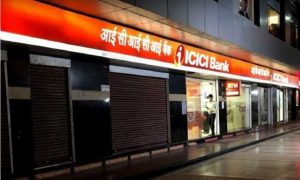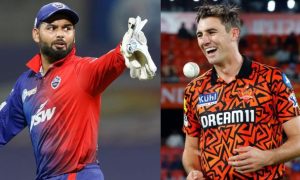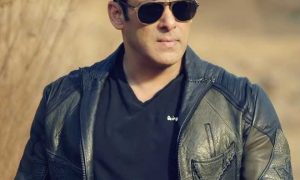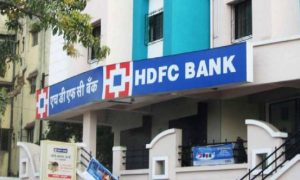It may seem logical for at least one of these movements to back the BJP’s idea of creating a separate state. But it appears there is no room for compromise.
Darjeeling: Leaders of three individual identity-based separate state movements in North Bengal, the region around the ‘chicken neck’ of West Bengal that connects the mainland of India to the states of the Northeast, do not appear keen on the BJP’s idea of creating a separate state or union territory (UT) out of the region.
The Gorkhaland movement which began in the 1980s, the Kamtapur movement which began in 1995 and the Greater Cooch Behar movement which began in 1998 have all been demanding a separate state in North Bengal. While it would seem logical for at least one of them to be interested in the BJP’s idea of dividing West Bengal, it appears that none of the three is open to compromise.
Ironically, given that the BJP has been associated with the Gorkhaland movement ever since the party entered West Bengal, the leaders of the movement believe that a separate state or UT of North Bengal would not serve their purpose. Only Gorkhaland will do.
And while the leaders of the two other movements are happy with the idea of a separate North Bengal, they stick firmly to their individual demands in a manner that political pundits believe will obstruct the BJP’s designs.
Meanwhile, the Adivasis who form a large portion of North Bengal’s population are completely against the idea of a separate state or UT for their region.
“We don’t want a UT. We don’t want a rerun of what is happening in Lakshadweep. We are fine in West Bengal. There is communal harmony. Why would we want to downgrade from a state to a UT?” asked Birsa Tirkey, president of the West Bengal chapter of the Akhil Bharatiya Adivasi Vikash Parishad, which works for the uplift and preservation of the language, culture, traditions and rights of different Adivasis communities.
Greater Cooch Behar
Bangshi Badan Barman, general secretary of the Greater Cooch Behar People’s Association (GCPA), told The Wire that the GCPA would welcome and support the creation of a North Bengal state, provided that the “sons of the soil” (the indigenous Rajbongshis) are taken into confidence.
“The merger treaties by which Cooch Behar became a part of India will have to be the basis of the creation of the new state and the name of the state should be Greater Cooch Behar or at least Cooch Behar,” Barman said.
Since 1998, the proponents of the Greater Cooch Behar movement have demanded a state comprising seven districts of North Bengal along with the Bongaigaon, Dhubri and Kokrajhar districts of Assam. They claim that the British Raj had taken charge of the kingdom of Cooch Behar through various treaties from 1773 to 1901, after which the kingdom returned to the Royal family of Cooch Behar.
“On September 12, 1949, the kingdom merged with India as a C-category state (Centrally administered) through three treaties. But on January 1, 1950, after invoking old British laws and an old map, the Union government of India bifurcated the kingdom and it became parts of West Bengal and Assam. We are now agitating to reverse this and to constitute a Greater Cooch Behar state,” explained Barman.
Kamtapuri movement
The Kamtapuris, otherwise known as Rajbongshis, a community of people indigenous to the area, have been agitating for a separate state that would comprise all the eight districts of North Bengal as well as four contiguous districts of Assam – Kokrajhar, Bongaigaon, Dhubri and Goalpara.
“We will not support the UT status but we welcome the demand for a separate state,” said Nikhil Roy, president of the Kamtapur Peoples’ Party (United). “The whole of North Bengal should be constituted as Kamtapur and the voices of the sons of the soil (Kamtapuris, aka Rajbongshis) should be strengthened as this land belongs to them. Dialogues can be opened.”
Despite Roy’s statement, political observers believe that the West Bengal government led by Mamata Banerjee has been successful to an extent in wooing the Kamtapuri community with development packages.
“The state government has fulfilled many of our demands,” said Milton Burman, former commander-in-chief of the Kamatpur Liberation Organisation. “We feel that our sacrifices have not gone in vain. The government has also lived up to its assurance of rehabilitating former militants and linkmen. The chief minister’s efforts have won our appreciation.”
The Gorkhaland demand
The leaders of the Gorkhaland movement could impose similar conditions on the BJP in exchange for their support, but neither Ajoy Edwards, leader of the Gorkha National Liberation Front (GNLF), nor Roshan Giri, general secretary of the Gorkha Janmukti Morcha (Bimal) (GJM), believe that a separate state or union territory of North Bengal would serve their purpose. They only want a separate state of Gorkhaland, which would comprise the Darjeeling hills and contiguous areas of the foothills of the terai, as well as the Dooars of the Darjeeling and Jalpaiguri districts.
“We want a permanent political solution for the Gorkhas,” said Edwards. “Our issues and problems are unique and will persist even if North Bengal is carved into a state or UT. We will be swamped by the majority and the political aspirations of the Gorkhas will not be fulfilled.”
The GJM (Bimal) faction has labelled the BJP’s idea of dividing West Bengal as a political gimmick. “Having lost the elections they have launched this political stunt,” said Giri. “Our demand is a permanent political solution for the hills, the terai and the Dooars. The Gorkhaland demand was first raised in 1907. They have to consider it.”
Similar sentiments are harboured by apolitical Gorkha outfits. “Gorkhas aspire for self-governance. Sufficient self-expression in governance is the root of democracy. We feel that in the case of a North Bengal state or UT, the idea of self-expression in governance for the Gorkhas will be a non-starter. We however welcome the initiation of the conversation which we feel will be meaningful in defining the criteria that need to be fulfilled for creation of a new state,” said Dr Munish Tamang, president of the Bharatiya Gorkha Parisang, an apolitical, pan India outfit working for the welfare and upliftment of the Gorkhas.
The BJP has been associated with the Gorkhaland movement ever since the party entered West Bengal. In 2009, the saffron party aligned with the GJM and in 2014 and won the Darjeeling Lok Sabha seat by assuring the Gorkhas that it would “sympathetically consider their long pending demands”. Later in 2019, with assurances of a permanent political solution for the hills, the BJP emerged victorious yet again in the Darjeeling Lok Sabha constituency and won six other seats in North Bengal.
In the 2021 assembly elections, the BJP entered into a political alliance with the GNLF and won 31 out of the 54 seats in North Bengal, while 22 went to the Trinamool Congress and one to an independent candidate.

The BJP’s plans
Since May, it seems, BJP leaders and public representatives from North Bengal have started political exercises to give shape to the idea of dividing West Bengal, hinging the proposed bifurcation on socio-economic, political and security issues.
Backed by the RSS, the saffron camp started a social media group with 37,370 members on May 6, named Uttarbanga Rajya Chai (We Want A Separate North Bengal) to generate a consensus for a demand for a separate state demand. The name of the group has since been changed to Banchita Uttarbanga (Neglected North Bengal) and it now has 47,000 members.
The Jalpaiguri district committee of the BJP also held a meeting on June 13, in which, among other things, union territory status for North Bengal, comprising the districts of Cooch Behar, Alipurduar, Jalpaiguri, Darjeeling, Kalimpong, North Dinajpur, South Dinajpur and Malda, was discussed.
“Union territory status for the North Bengal region is the only solution to the numerous socio-economic, political and security issues plaguing this region,” Alok Chakraborty, vice president of the BJP district committee of Jalpaiguri, told The Wire.
Chakraborty claimed that North Bengal has always been neglected by the state governments of West Bengal, whether led by Left Front or by the present Trinamool Congress. The region is just a weekend getaway for leaders from Kolkata, he said.
“North Bengal is underdeveloped and the people, whether tea garden workers or from tribes, are backward,” Chakraborty claimed. “There is no health or education infrastructure. There are no employment opportunities. The revenue collected from North Bengal in the form of taxes is used for the development of South Bengal. All this has sparked resentment among the masses, which is why there are three demands for a separate state, including Gorkhaland, Kamtapur and Greater Cooch Behar.”
Chakraborty also cited security issues that he claimed would be solved if North Bengal were a separate state or a UT. “It is surrounded by four international borders including China, Bangladesh, Nepal and Bhutan. Infiltration and cross border crimes are perennial problems. Under these conditions, the area should be directly under the control of Delhi,” Chakraborty said.
The Jalpaiguri district committee of the BJP is planning to hold a public forum in the near future that will generate a referendum for the demand for a state or union territory for North Bengal, said Chakraborty. “We will then table the demand to the prime minister and Union home minister,” he added.
John Barla, the BJP Lok Sabha MP from Alipurduar, backed Chakraborty’s statement. “The seven BJP MPs from North Bengal will take the demand forward in Delhi before the monsoon session of parliament,” he told The Wire.
This is not the first time that the BJP has raised a demand to bifurcate West Bengal into North and South Bengal. On August 4, 2015, BJP leaders from North Bengal in the presence of West Bengal state leaders had spoken about a separate state comprising the districts of North Bengal in a ‘Maha Sampark Aviyan’ meeting in Darjeeling.
Ravindra Narayan Choudhury, the then BJP West Bengal state secretary, had stated that since there had been no permanent political solutions to the separate state demands of Kamtapur, Greater Cooch Behar and Gorkhaland, the BJP could play a proactive role and form a separate state comprising the districts of North Bengal.
“The BJP supports the creation of smaller states,” Choudhury had then stated.
‘Bengal will not be divided’
For Mamata Banerjee, chief minister of West Bengal, there is no question of the state being divided.
She had announced a four-day tour of North Bengal commencing on June 26 to mobilise the masses against the BJP’s idea of division, but has deferred the tour because of the incessant rain and flood-like situation in the state.
“The BJP’s divide and rule policy will not bear fruit in Bengal. The people will give a befitting reply if any attempt is made to divide the state and in any case, it cannot be done without the consent of the state government,” said Banerjee.
Banerjee dismissed the BJP’s claims that North Bengal has been neglected and underdeveloped. “These are baseless allegations with the ulterior motive of fomenting trouble and disturbing peace and tranquility of the region,” she said.
As for the BJP’s claims of security issues due to the close presence of four neighbouring countries, Banerjee said: “It is the Central forces that guard the international borders. How can the BJP raise security concerns?”
A West Bengal government official claimed that the Mamata Banerjee government has increased the budget for the development of North Bengal by 800% in the past 10 years compared to the budget for the region created by the Left Front government.
For the Communist Party of India (Marxist), this is a non-issue. “The Left has always opposed the creation of new states, so we will oppose this as well,” said party leader Asok Bhattacharya.
But the Indian National Congress has vehemently criticised the idea. “We will not allow the bifurcation of Bengal. The BJP has always been fuelling separate state demands with the motive of reaping political dividends,” alleged Shubin Bhowmik, vice president of the West Bengal Pradesh Congress.
Meanwhile, several peoples’ groups in West Bengal have also rejected the idea of dividing the state. Bangla Pokkho, an organisation working for the welfare and rights of Bengalis since 2017, has vowed to oppose the BJP’s demand tooth and nail.
“The BJP has been rejected by Bengal. They are now conspiring to create unrest by fanning ethnic sentiments. We will not allow any further division of Bengal,” said Kausik Maiti, a central committee member of Bangla Pokkho.
Interestingly, the BJP itself is a divided house on this issue.
“The BJP has no agenda of creating a separate state or union territory comprising North Bengal districts. It is a baseless propaganda by the Trinamool Congress in connivance with a section of the media,” claimed West Bengal BJP president Dilip Ghosh.



































